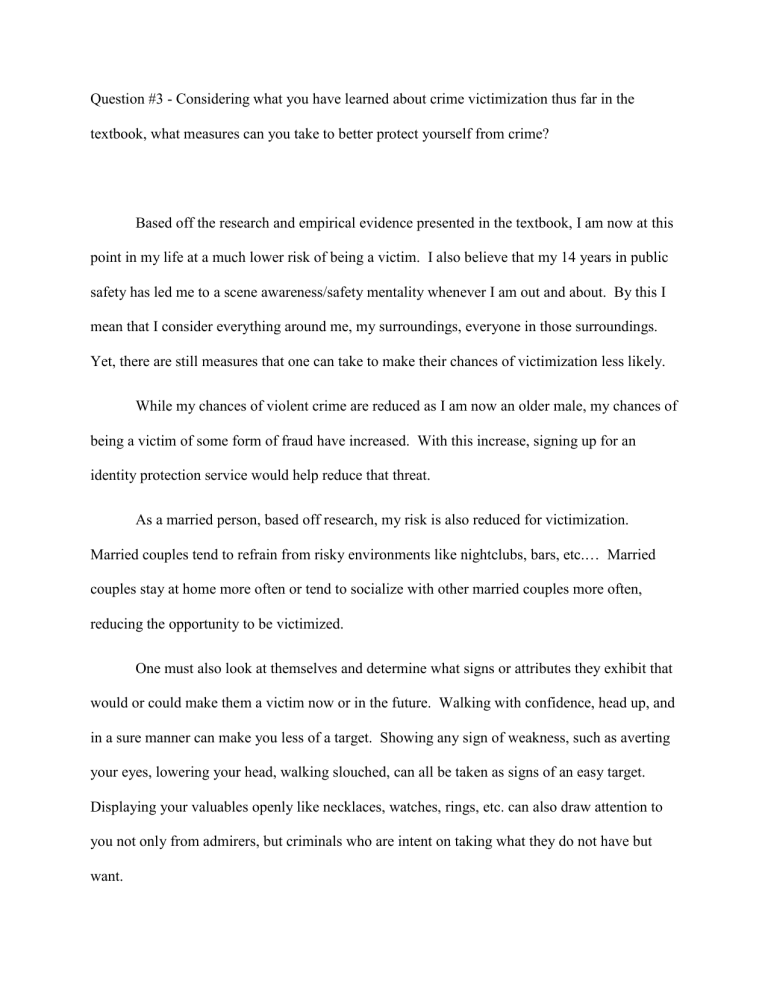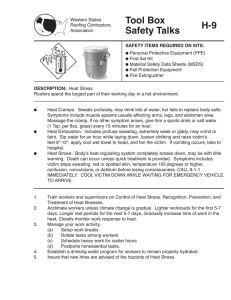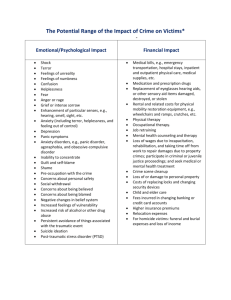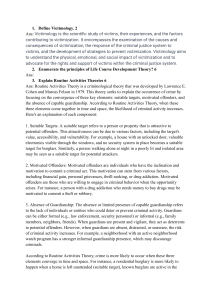Crime Prevention: Personal Safety Measures & Risk Reduction
advertisement

Question #3 - Considering what you have learned about crime victimization thus far in the textbook, what measures can you take to better protect yourself from crime? Based off the research and empirical evidence presented in the textbook, I am now at this point in my life at a much lower risk of being a victim. I also believe that my 14 years in public safety has led me to a scene awareness/safety mentality whenever I am out and about. By this I mean that I consider everything around me, my surroundings, everyone in those surroundings. Yet, there are still measures that one can take to make their chances of victimization less likely. While my chances of violent crime are reduced as I am now an older male, my chances of being a victim of some form of fraud have increased. With this increase, signing up for an identity protection service would help reduce that threat. As a married person, based off research, my risk is also reduced for victimization. Married couples tend to refrain from risky environments like nightclubs, bars, etc.… Married couples stay at home more often or tend to socialize with other married couples more often, reducing the opportunity to be victimized. One must also look at themselves and determine what signs or attributes they exhibit that would or could make them a victim now or in the future. Walking with confidence, head up, and in a sure manner can make you less of a target. Showing any sign of weakness, such as averting your eyes, lowering your head, walking slouched, can all be taken as signs of an easy target. Displaying your valuables openly like necklaces, watches, rings, etc. can also draw attention to you not only from admirers, but criminals who are intent on taking what they do not have but want. Behavior can also make one a victim. Getting drunk and becoming loud and obnoxious is a sure-fire way to get a person into a tussle. Making off color remarks, or derogatory comments is another way to get involved in mutual combat. Aggravating others for whatever reason should be avoided at all costs. In general, avoiding high risk situations, using common sense, being aware of one’s surroundings, and surrounding oneself with the right individuals is the best deterrence to becoming a victim. While we cannot live in a bubble, and hide all day and night, by being vigilant, and using caution, refraining from dangerous activity and dangerous areas, and choosing our friends wisely, we can reduce the likelihood of becoming a victim in these times. Nothing is foolproof but practicing a positive and low risk lifestyle is the best method to combat becoming a victim. References Siegel, L. J. (2019). Criminology: The Core (6th ed.). Wadsworth.


